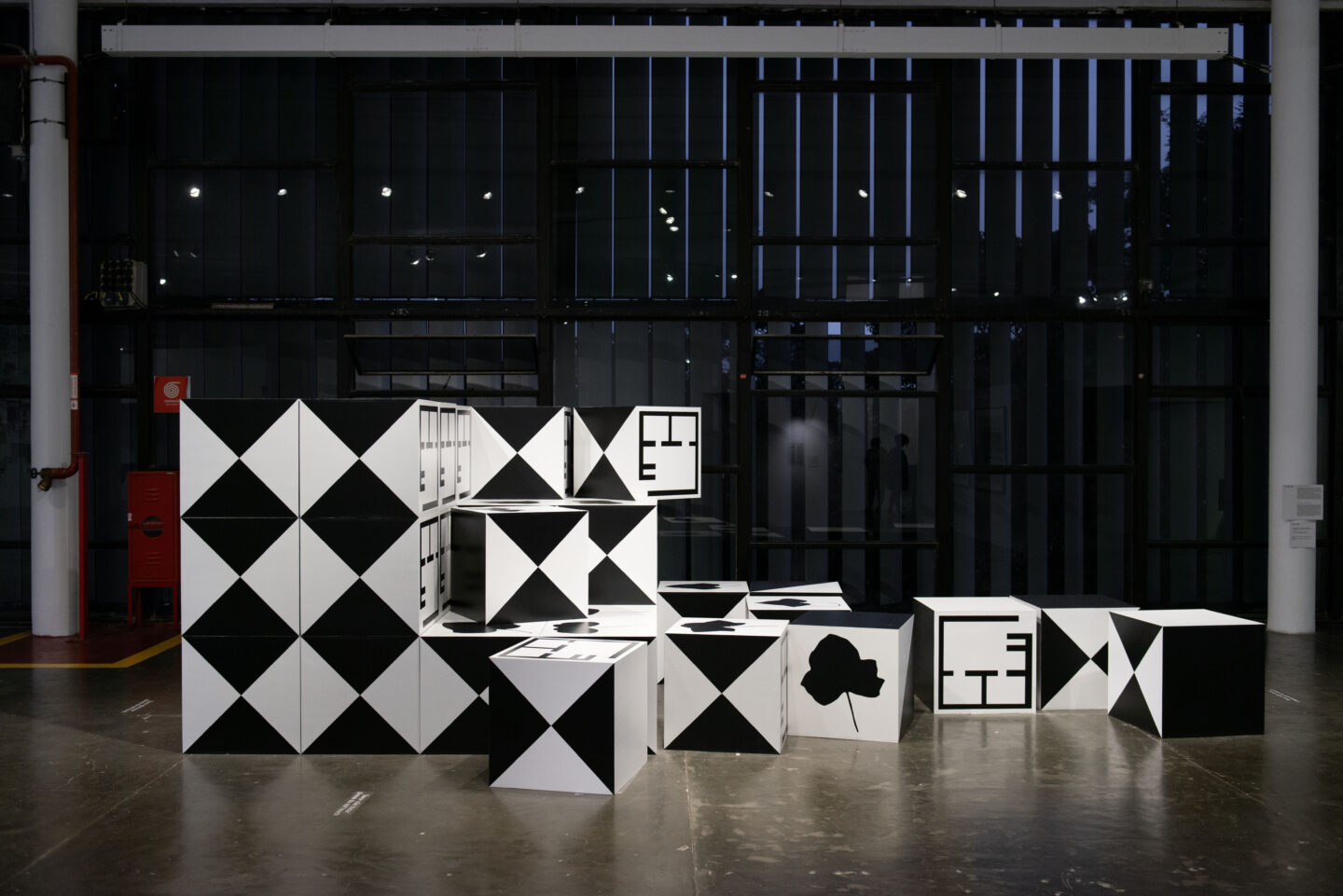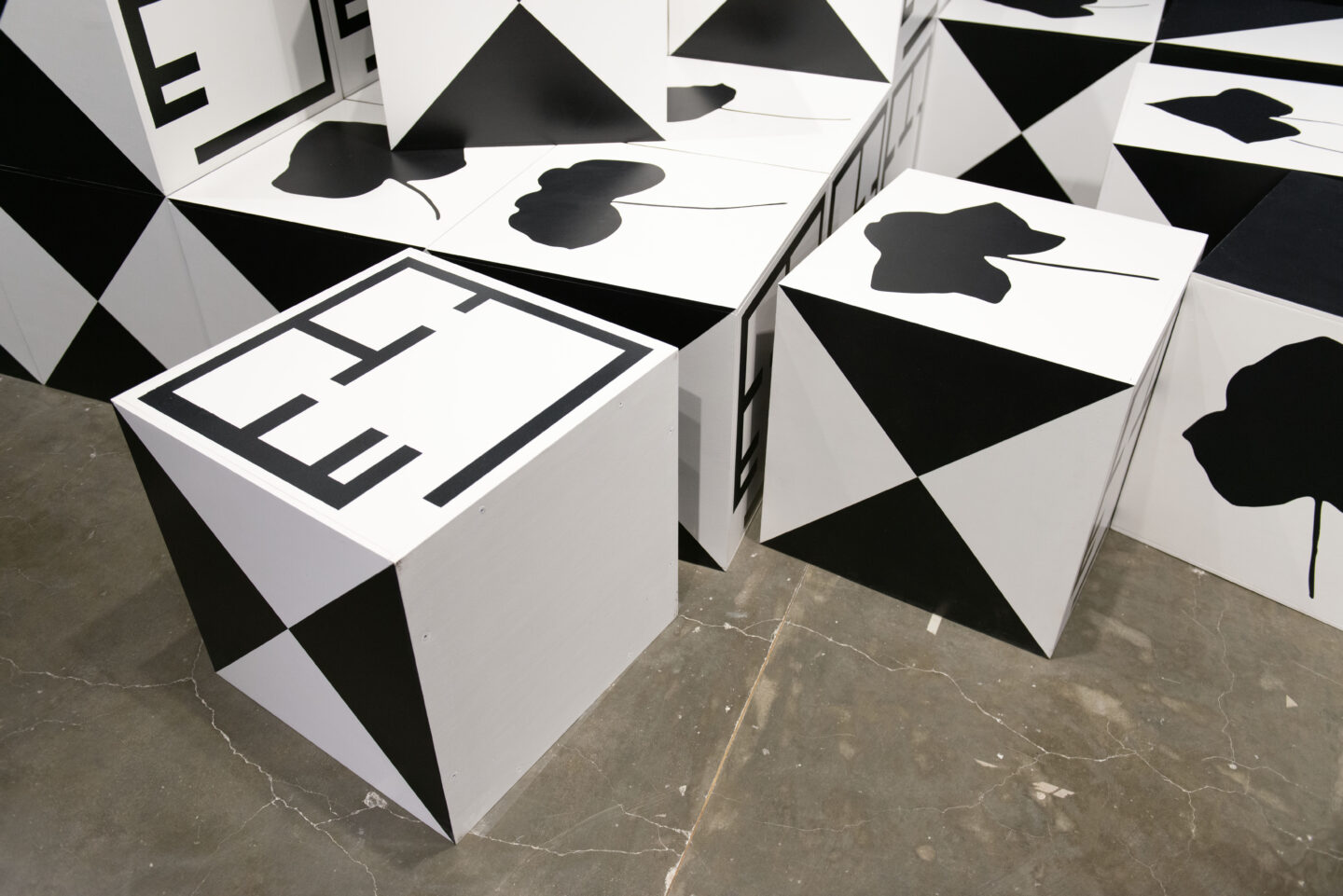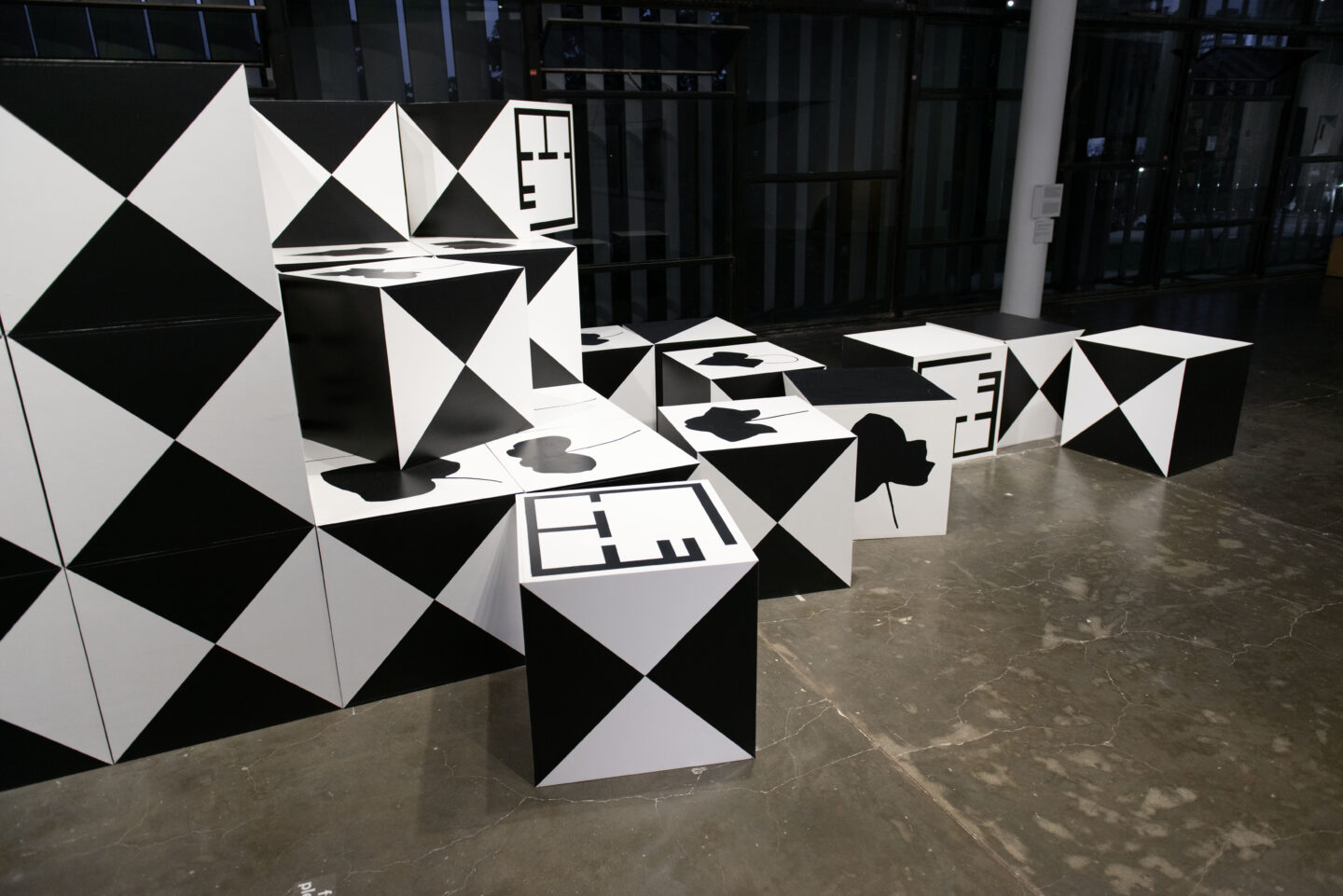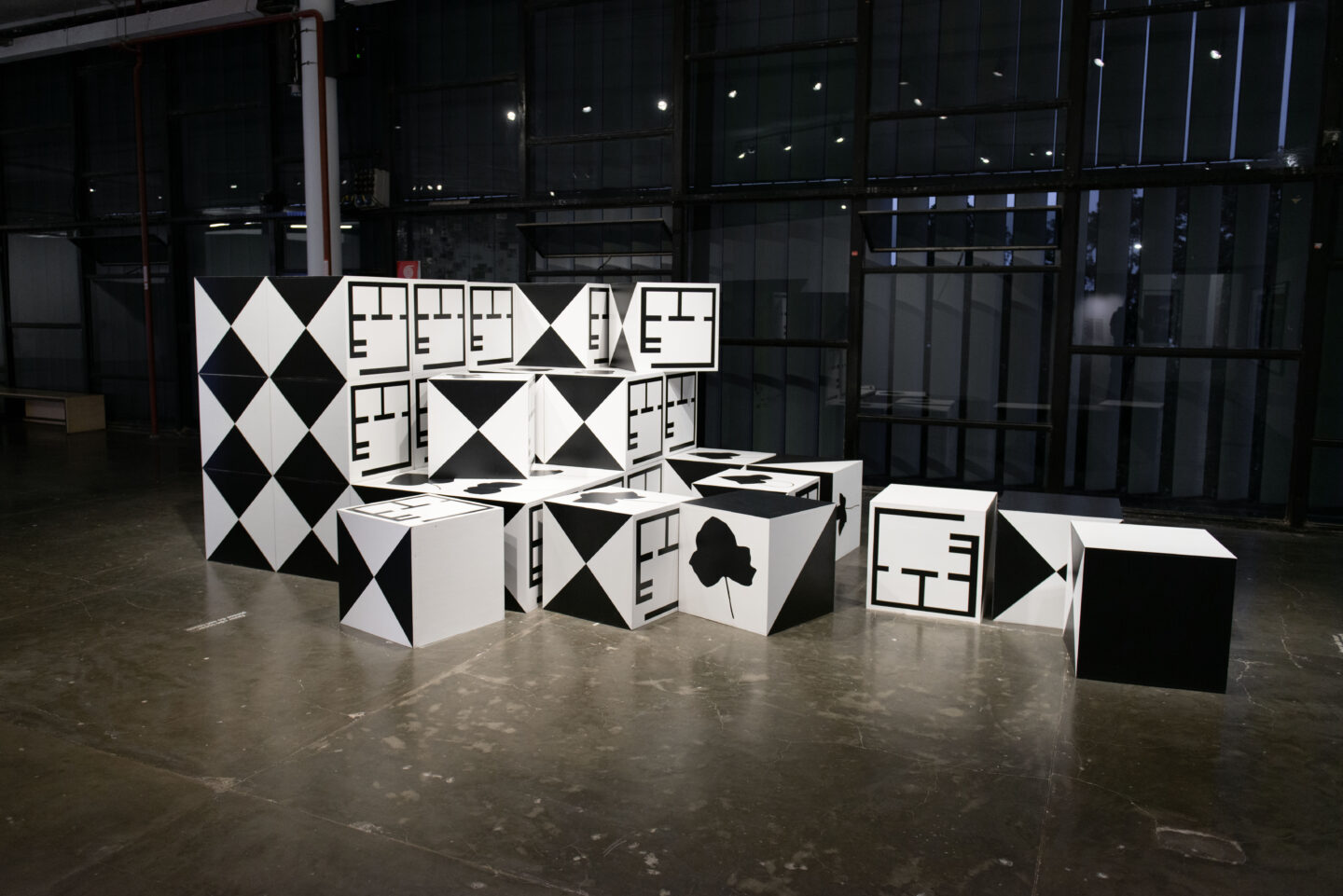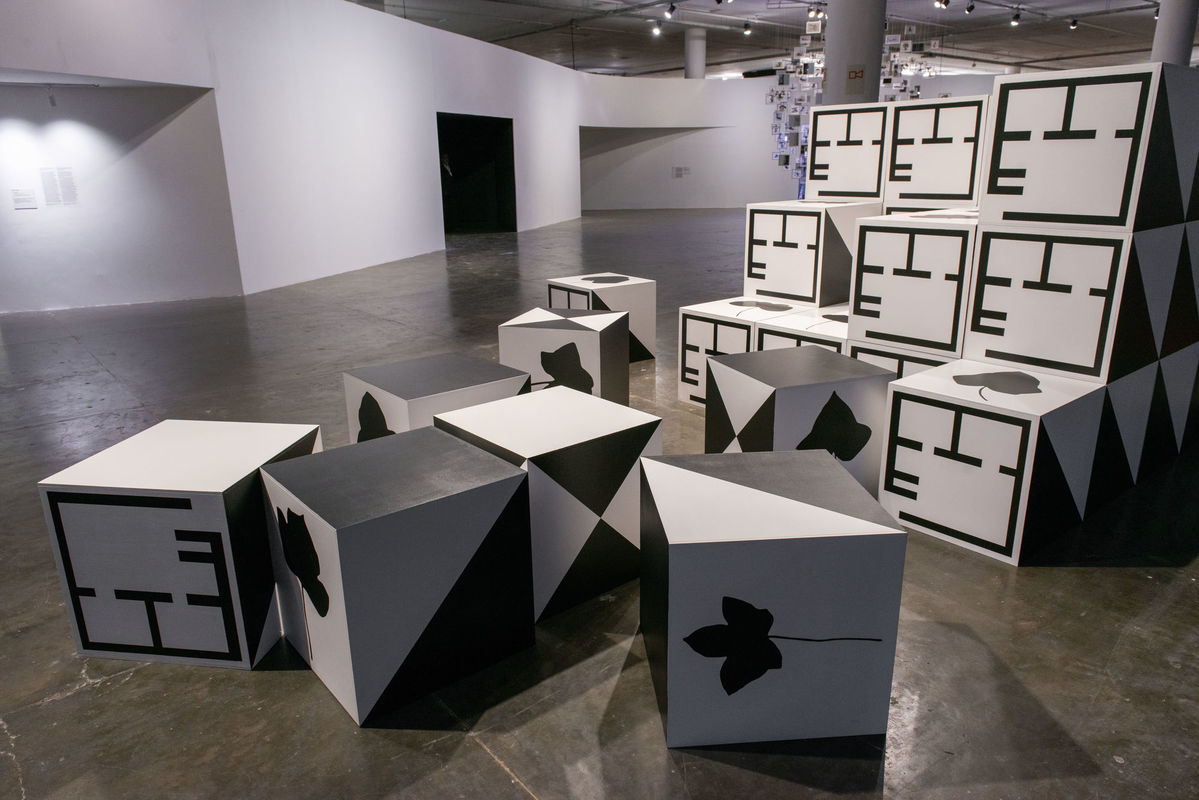
Yto Barrada
Yto Barrada takes play seriously. For this perpetual learner, play is a powerful educational tool that appeals to the senses as much as to the intellect. For instance, Land and Water Forms (2019), a set of acrylic and gesso works on cardboard, displays a grammar of natural shapes adapted from Montessori molded trays. Conversely, educational play is an ideal framework for artistic experimentation – the joy of making and breaking rules. The video Tree Identification for Beginners (2017) tells the story of the artist’s mother’s first trip to the USA – and larger stories of the Cold War and civil rights activism – through a captivating and hilarious montage of voice over, Foley sounds, and animated Montessori toys.
A historian by training, Barrada is interested in the myriad ways in which historical events and the social fabric constitute each other. As an artist, she is constantly on the lookout for forms that might translate the complexity of those relations. Politics pervades her work, but always obliquely, as serious questions are best tackled with humor. See the levity of her posters’ wordplay (“I am not exotic I am exhausted”; “Sheikh Spear is Arab”…) or the satirical text “A Modest Proposal to Modernize Morocco and Maximize its Resources and Efficiency” (2010), attributed to a fictional character whose name, Yahia Sari, is an Arabic adaptation of Jonathan Swift.
Many real characters have also come to populate her photo and video work over the years. The Sleepers (2006), The Smuggler (2006), and The Magician (2003) are beautiful marginals who find creative ways of resisting the chokehold of neoliberal domination. In addition, some historical characters recur, chief among them is Hubert Lyautey, the first French Resident General in Morocco (1912–-1925), a brutal colonizer admired by some for his introduction of modernist urbanism and his (selective) preservation of local craft traditions. Beyond the surface affect, Barrada exposes the figure of Lyautey, playing with his well-known quotes and famous moustache in posters and collages, or offering his name up as a (de)construction game in the various versions of her Lyautey Unit Blocks. Here, as in most of her work, politics and play, seriousness and irreverence go hand in hand.
omar berrada
- Vista da instalação Untitled (Casablanca Unit Blocks – with Bettina) [Sem título (Blocos de unidades de Casablanca – com Bettina)], de Yto Barrada durante a 35ª Bienal de São Paulo – coreografias do impossível © Levi Fanan / Fundação Bienal de São Paulo
- Vista da instalação Untitled (Casablanca Unit Blocks – with Bettina) [Sem título (Blocos de unidades de Casablanca – com Bettina)], de Yto Barrada durante a 35ª Bienal de São Paulo – coreografias do impossível © Levi Fanan / Fundação Bienal de São Paulo
- Vista da instalação Untitled (Casablanca Unit Blocks – with Bettina) [Sem título (Blocos de unidades de Casablanca – com Bettina)], de Yto Barrada durante a 35ª Bienal de São Paulo – coreografias do impossível © Levi Fanan / Fundação Bienal de São Paulo
- Vista da instalação Untitled (Casablanca Unit Blocks – with Bettina) [Sem título (Blocos de unidades de Casablanca – com Bettina)], de Yto Barrada durante a 35ª Bienal de São Paulo – coreografias do impossível © Levi Fanan / Fundação Bienal de São Paulo
Yto Barrada (Paris, France, 1971, lives in New York, USA) is recognized by her investigations on cultural phenomena and official histories, inspired by her infancy in Tangiers (Morocco). Through photography, film, sculpture, print and installation, Barrada reinterprets social relations, and reveals the preponderance of fiction in historical and institutional narratives. Her work has been exhibited at the Tate Modern (London, UK), MoMA (New York), Witte de With (Rottedam, Netherlands), Haus der Kunst (Munich, Germany), Centre Pompidou (Paris, France), and the 52nd and 54th Venice Biennale (Italy). She was awarded the Deutsche Bank Artist of the Year (2011).

 Português
Português